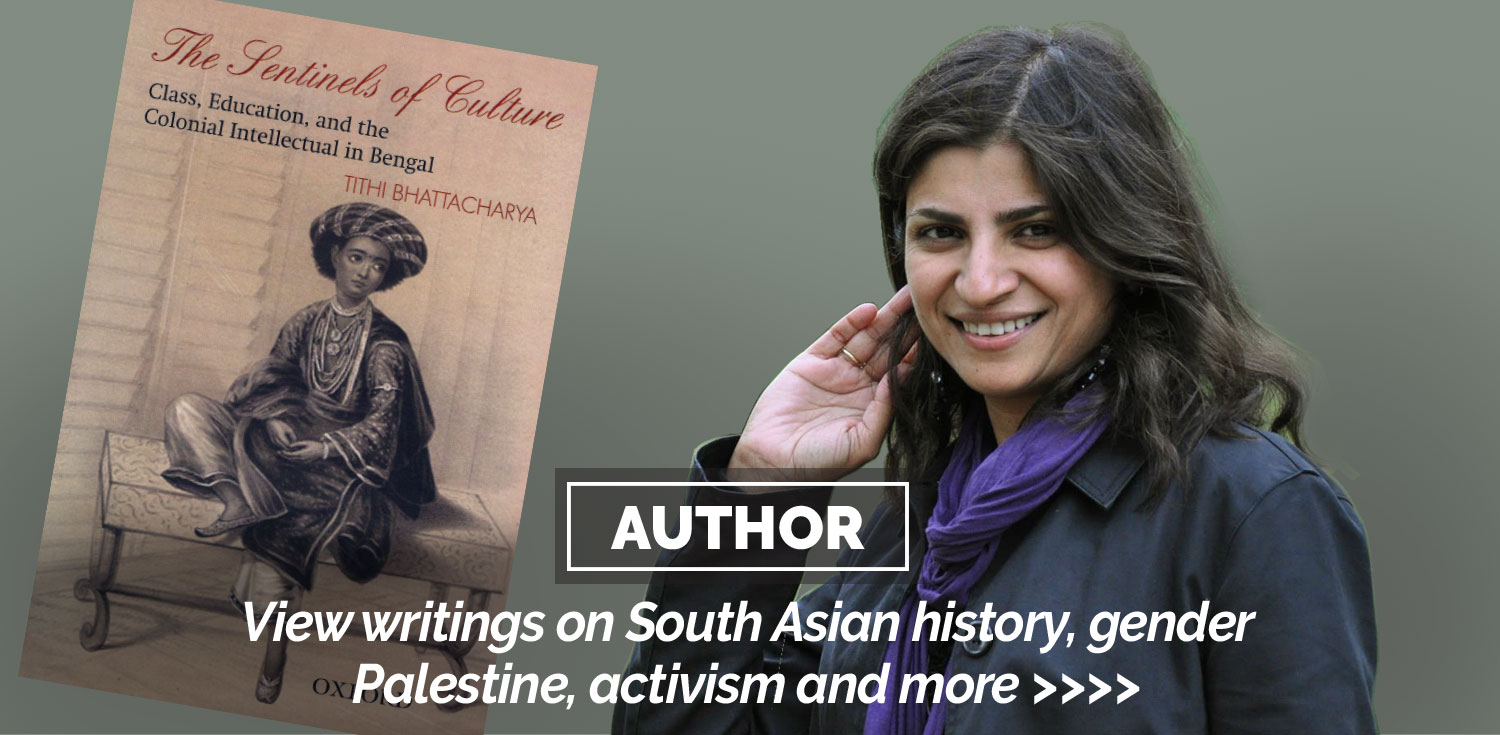Tithi Bhattacharya is an Associate Professor of History and the Director of Global Studies at Purdue University. She specializes in Modern South Asian History and writes extensively on colonialism, nation and class formation, gender, and the politics of Islamophobia. She writes regularly for Huffington Post.
FEATURED WRITINGS
Social Reproduction Theory: Remapping Class, Recentering Oppression
This groundbreaking collection explores the profound power of Social Reproduction Theory to deepen our understanding of everyday life under capitalism. While many Marxists tend to focus on the productive economy, this book focuses on issues such as child care, health care, education, family life and the roles of gender, race and sexuality, all of which are central to understanding the relationship between economic exploitation and social oppression.
Click here to buy from Pluto Press.
Click here to buy from Amazon.
Tithi's Huffington Post Column
Tithi now has a regular spot at Huffington Post. You can subscribe and follow her writing here.
The Sentinels of Culture: Class, Education, and the Colonial Intellectual in Bengal
Tithi’s first book was published by Oxford University Press in 2005. The book looks at the co-constitutive relationship between processes of class formation and nation formation. The book focuses on a very specific aspect of the Bengali middle class’s social history: their obsessive preoccupation with culture and education. Reviews
Explaining Gender Violence in the Neoliberal Era
Let us begin with an image: a naked white man pursuing a low-wage Black female asylum seeker down the corridors of an expensive Manhattan hotel in order to force her to have sex with him. The man, of course, is the then-director of the International Monetary Fund (IMF), French politician Dominique Strauss-Kahn, and the woman, thirtythree-year-old Nafissatou Diallo, a housekeeper at Strauss-Kahn’s hotel. Full article
Israel’s fear of boycott rooted in tactic’s historic victories against colonialism
Historically, boycott is a tactic used by the dispossessed against the powerful. This is not a new tactic. Boycott has deep roots in anti-imperialist struggle, internationally. Palestinians stand alongside other anti-imperialist fighters whose rich and fierce history of struggle is worth recalling today — not simply because it ought to be part of our collective historical memory, but also because they won against their oppressors. Full article
How Not to Skip Class: Social Reproduction of Labor and the Global Working Class
In this essay, I refute a narrow conception of class by reactivating fundamental Marxist insights about class formation that have been obscured by four decades of neoliberalism and the many defeats of the global working class. The key to developing a sufficiently dynamic understanding of the working class, I argue, is the framework of social reproduction. In thinking about the working class, it is essential to recognize that workers have an existence beyond the workplace. Full article.


















